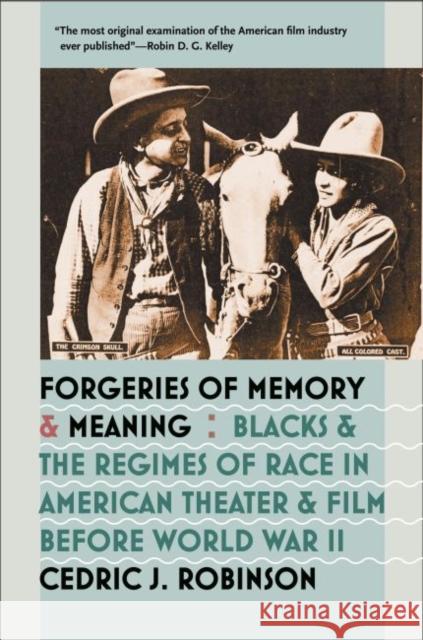Forgeries of Memory and Meaning: Blacks and the Regimes of Race in American Theater and Film before World War II » książka
Forgeries of Memory and Meaning: Blacks and the Regimes of Race in American Theater and Film before World War II
ISBN-13: 9780807858417 / Angielski / Miękka / 2007 / 456 str.
Forgeries of Memory and Meaning: Blacks and the Regimes of Race in American Theater and Film before World War II
ISBN-13: 9780807858417 / Angielski / Miękka / 2007 / 456 str.
(netto: 166,21 VAT: 5%)
Najniższa cena z 30 dni: 168,98
ok. 30 dni roboczych
Bez gwarancji dostawy przed świętami
Darmowa dostawa!
Cedric J. Robinson offers a new understanding of race in America through his analysis of theater and film of the early twentieth century. He argues that economic, political, and cultural forces present in the eras of silent film and the early "talkies" firmly entrenched limited representations of African Americans.
Robinson grounds his study in contexts that illuminate the parallel growth of racial beliefs and capitalism, beginning with Shakespearean England and the development of international trade. He demonstrates how the needs of American commerce determined the construction of successive racial regimes that were publicized in the theater and in motion pictures, particularly through plantation and jungle films. In addition to providing new depth and complexity to the history of black representation, Robinson examines black resistance to these practices. Whereas D. W. Griffith appropriated black minstrelsy and romanticized a national myth of origins, Robinson argues that Oscar Micheaux transcended uplift films to create explicitly political critiques of the American national myth. Robinson's analysis marks a new way of approaching the intellectual, political, and media racism present in the beginnings of American narrative cinema.











